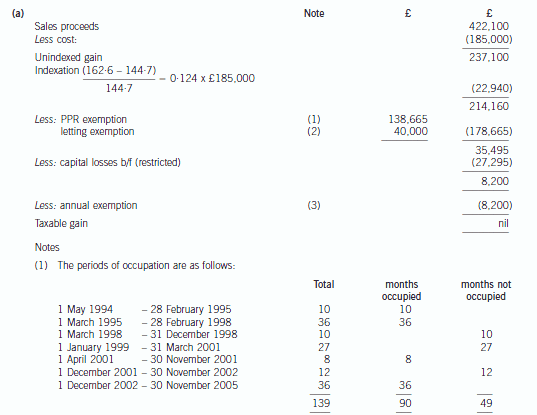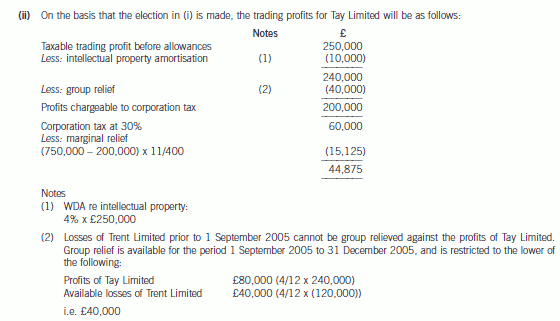了解一下:ACCA考试对于英语能力的要求高不高?
发布时间:2020-09-03
各位小伙伴大家好,很多小伙伴想知道ACCA考试对于英语能力的要求高不高?英语零基础的考生能否报考ACCA考试呢?为了帮助大家了解清楚,51题库考试学习网为大家带来了相关内容,让我们一起来看看吧!
一、考ACCA对英语水平要求高吗
(一)ACCA对英语的要求不算很高,一般考过四、六级的学生在看ACCA教材的时候不会有很大的困难。因为ACCA考试的词汇量其实很有限,看多了教材和做过了习题就会发现很多单词都是重复出现的,刚入门的时候会觉得他们很陌生,但是当一科完整学习下来以后你就能够非常熟悉这些单词和句式的表达了。建议大家平时多背背单词,语法忘光了的可以看看语法,因为ACCA考试是全英文,所以大家要先保证自己可以理解,然后才能更好地答题。学ACCA的时候有很多人英语成绩很差的也过了,其实就是多做题,找关键词。
(二)而且ACCA考试语法错误和拼写错误是不扣分的。即使学生的英语水平一般,回答主观题的时候一些句式语法使用不够标准也不会影响考试的通过,只要知识点理解到位并且能够正确运用在案例中,一些小的瑕疵是不会扣分的。大家不必过于焦虑,其实只需要掌握特定的专业词汇,参考历年真题答案中的一些专业句式表达,就能够轻松应对考试。
二、英语零基础能否报考ACCA?
(一)理论上讲:只要具有高中毕业以后的英语水平的学员是可以开始学习ACCA的(因为第一阶段涉及到的会计类和管理类的单词都是基础阶段的,比如说Financial Statement—财务报表,Assets-资产都非常容易理解。大家可以在学习的过程中提高自己的英语水平,英语水平提高以后,考试难度自然就小了。
(二)第二阶段的课程有六门(F4-F9),知识方面也是循序渐进的。两门纯粹考理论的F4和F8,没有任何的计算。其中F4是以大量的记忆为主的(因为是法律方面的课程),所以非常具有记忆的性质(法律条文相对来说要的是语言的严谨)。F8的课程和F4很相像,因为审计也是强调程序和方法,以及流程图表的,所以学习方法基本类似。
以上就是今天分享的全部内容了,各位小伙伴根据自己的情况进行查阅,希望本文对各位有所帮助,预祝各位取得满意的成绩,如需了解更多相关内容,请关注51题库考试学习网!
下面小编为大家准备了 ACCA考试 的相关考题,供大家学习参考。
1 Stuart is a self-employed business consultant aged 58. He is married to Rebecca, aged 55. They have one child,
Sam, who is aged 24 and single.
In November 2005 Stuart sold a house in Plymouth for £422,100. Stuart had inherited the house on the death of
his mother on 1 May 1994 when it had a probate value of £185,000. The subsequent pattern of occupation was as
follows:
1 May 1994 to 28 February 1995 occupied by Stuart and Rebecca as main residence
1 March 1995 to 31 December 1998 unoccupied
1 January 1999 to 31 March 2001 let out (unfurnished)
1 April 2001 to 30 November 2001 occupied by Stuart and Rebecca
1 December 2001 to 30 November 2005 used occasionally as second home
Both Stuart and Rebecca had lived in London from March 1995 onwards. On 1 March 2001 Stuart and Rebecca
bought a house in London in their joint names. On 1 January 2002 they elected for their London house to be their
principal private residence with effect from that date, up until that point the Plymouth property had been their principal
private residence.
No other capital disposals were made by Stuart in the tax year 2005/06. He has £29,500 of capital losses brought
forward from previous years.
Stuart intends to invest the gross sale proceeds from the sale of the Plymouth house, and is considering two
investment options, both of which he believes will provide equal risk and returns. These are as follows:
(1) acquiring shares in Omikron plc; or
(2) acquiring further shares in Omega plc.
Notes:
1. Omikron plc is a listed UK trading company, with 50,250,000 shares in issue. Its shares currently trade at 42p
per share.
2. Stuart and Rebecca helped start up the company, which was then Omega Ltd. The company was formed on
1 June 1990, when they each bought 24,000 shares for £1 per share. The company became listed on 1 May
1997. On this date their holding was subdivided, with each of them receiving 100 shares in Omega plc for each
share held in Omega Ltd. The issued share capital of Omega plc is currently 10,000,000 shares. The share price
is quoted at 208p – 216p with marked bargains at 207p, 211p, and 215p.
Stuart and Rebecca’s assets (following the sale of the Plymouth house but before any investment of the proceeds) are
as follows:
Assets Stuart Rebecca
£ £
Family house in London 450,000 450,000
Cash from property sale 422,100 –
Cash deposits 165,000 165,000
Portfolio of quoted investments – 250,000
Shares in Omega plc see above see above
Life insurance policy note 1 note 1
Note:
1. The life insurance policy will pay out a sum of £200,000 on the death of the first spouse to die.
Stuart has recently been diagnosed with a serious illness. He is expected to live for another two or three years only.
He is concerned about the possible inheritance tax that will arise on his death. Both he and Rebecca have wills whose
terms transfer all assets to the surviving spouse. Rebecca is in good health.
Neither Stuart nor Rebecca has made any previous chargeable lifetime transfers for the purposes of inheritance tax.
Required:
(a) Calculate the taxable capital gain on the sale of the Plymouth house in November 2005 (9 marks)

Note that the last 36 months count as deemed occupation, as the house was Stuart’s principal private residence (PPR)
at some point during his period of ownership.
The first 36 months of the period from 1 March 1995 to 31 March 2001 qualifies as a deemed occupation period as
Stuart and Rebecca returned to occupy the property on 1 April 2001. The remainder of the period will be treated as a
period of absence, although letting relief is available for part of the period (see below).
The exempt element of the gain is the proportion during which the property was occupied, real or deemed. This is
£138,665 (90/139 x £214,160).
(2) The chargeable gain is restricted for the period that the property was let out. This is restricted to the lowest of the
following:
(i) the gain attributable to the letting period (27/139 x 214,160) = £41,599
(ii) £40,000
(iii) the total exempt PPR gain = £138,665
i.e. £40,000.
(3) The taper relief is effectively wasted, having restricted losses b/f to preserve the annual exemption.
(b) You are the manager responsible for the audit of Poppy Co, a manufacturing company with a year ended
31 October 2008. In the last year, several investment properties have been purchased to utilise surplus funds
and to provide rental income. The properties have been revalued at the year end in accordance with IAS 40
Investment Property, they are recognised on the statement of financial position at a fair value of $8 million, and
the total assets of Poppy Co are $160 million at 31 October 2008. An external valuer has been used to provide
the fair value for each property.
Required:
(i) Recommend the enquiries to be made in respect of the external valuer, before placing any reliance on their
work, and explain the reason for the enquiries; (7 marks)
(b) (i) Enquiries in respect of the external valuer
Enquiries would need to be made for two main reasons, firstly to determine the competence, and secondly the objectivity
of the valuer. ISA 620 Using the Work of an Expert contains guidance in this area.
Competence
Enquiries could include:
– Is the valuer a member of a recognised professional body, for example a nationally or internationally recognised
institute of registered surveyors?
– Does the valuer possess any necessary licence to carry out valuations for companies?
– How long has the valuer been a member of the recognised body, or how long has the valuer been licensed under
that body?
– How much experience does the valuer have in providing valuations of the particular type of investment properties
held by Poppy Co?
– Does the valuer have specific experience of evaluating properties for the purpose of including their fair value within
the financial statements?
– Is there any evidence of the reputation of the valuer, e.g. professional references, recommendations from other
companies for which a valuation service has been provided?
– How much experience, if any, does the valuer have with Poppy Co?
Using the above enquiries, the auditor is trying to form. an opinion as to the relevance and reliability of the valuation
provided. ISA 500 Audit Evidence requires that the auditor gathers evidence that is both sufficient and appropriate. The
auditor needs to ensure that the fair values provided by the valuer for inclusion in the financial statements have been
arrived at using appropriate knowledge and skill which should be evidenced by the valuer being a member of a
professional body, and, if necessary, holding a licence under that body.
It is important that the fair values have been arrived at using methods allowed under IAS 40 Investment Property. If any
other valuation method has been used then the value recognised in the statement of financial position may not be in
accordance with financial reporting standards. Thus it is important to understand whether the valuer has experience
specifically in providing valuations that comply with IAS 40, and how many times the valuer has appraised properties
similar to those owned by Poppy Co.
In gauging the reliability of the fair value, the auditor may wish to consider how Poppy Co decided to appoint this
particular valuer, e.g. on the basis of a recommendation or after receiving references from companies for which
valuations had previously been provided.
It will also be important to consider how familiar the valuer is with Poppy Co’s business and environment, as a way to
assess the reliability and appropriateness of any assumptions used in the valuation technique.
Objectivity
Enquiries could include:
– Does the valuer have any financial interest in Poppy Co, e.g. shares held directly or indirectly in the company?
– Does the valuer have any personal relationship with any director or employee of Poppy Co?
– Is the fee paid for the valuation service reasonable and a fair, market based price?
With these enquiries, the auditor is gaining assurance that the valuer will perform. the valuation from an independent
point of view. If the valuer had a financial interest in Poppy Co, there would be incentive to manipulate the valuation in
a way best suited to the financial statements of the company. Equally if the valuer had a personal relationship with a
senior member of staff at Poppy Co, the valuer may feel pressured to give a favourable opinion on the valuation of the
properties.
The level of fee paid is important. It should be commensurate with the market rate paid for this type of valuation. If the
valuer was paid in excess of what might be considered a normal fee, it could indicate that the valuer was encouraged,
or even bribed, to provide a favourable valuation.
(ii) Calculate the corporation tax (CT) payable by Tay Limited for the year ended 31 March 2006, taking
advantage of all available reliefs. (3 marks)

声明:本文内容由互联网用户自发贡献自行上传,本网站不拥有所有权,未作人工编辑处理,也不承担相关法律责任。如果您发现有涉嫌版权的内容,欢迎发送邮件至:contact@51tk.com 进行举报,并提供相关证据,工作人员会在5个工作日内联系你,一经查实,本站将立刻删除涉嫌侵权内容。
- 2020-01-10
- 2020-02-05
- 2019-12-31
- 2020-04-22
- 2020-04-15
- 2020-04-29
- 2020-01-10
- 2020-01-10
- 2020-01-10
- 2020-01-10
- 2020-01-09
- 2020-01-09
- 2020-05-09
- 2020-04-18
- 2020-01-10
- 2020-03-01
- 2020-04-30
- 2020-01-10
- 2020-05-19
- 2020-04-16
- 2020-04-11
- 2020-04-21
- 2020-01-10
- 2020-01-10
- 2020-01-10
- 2020-02-27
- 2020-01-10
- 2020-05-09
- 2020-04-19
- 2021-07-22